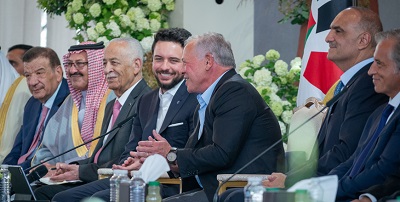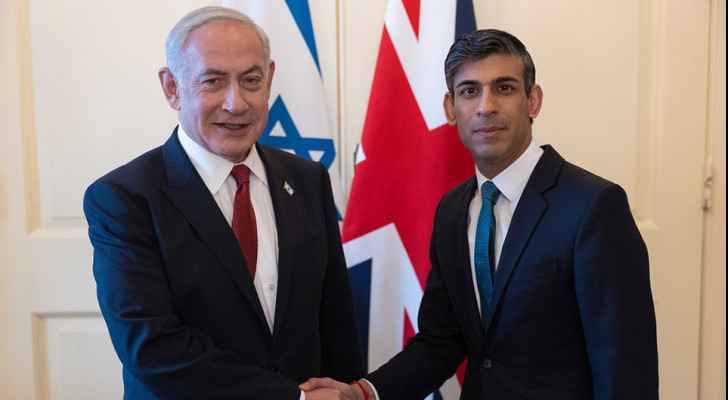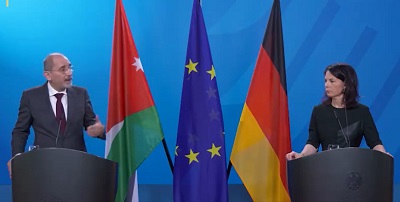Preventing Iran from War - By Salman Al-dossary , Alarabiya
The atmosphere is the same, so are the tensions. Thirty-nine years ago, the first Gulf War broke out between Iraq and Iran (1980-1988), followed by a second war to liberate Kuwait from Iraqi occupation in 1991. The third was to topple Saddam Hussein’s regime in Iraq in 2003.
These days, the region is experiencing political and military tension that is clear to everyone, as if the clouds of a fourth war were hovering. This was reinforced after the US sent the Abraham Lincoln aircraft carrier, and four vessels of different origins, including two Saudis, were subjected to a serious sabotage in the waters of the Arabian Gulf facing the Emirate of Fujairah.
A US investigation team reached an initial assessment that Iran or its agents were behind the attack in which “explosive devices” were used. Shortly after, Iran, through the Houthis, carried out a terrorist attack with a booby-trapped drone on two major Saudi pipelines, which flow into the port of Yanbu in the west of the Kingdom.
All the causes of tension and instability are linked to one country – Iran. Riyadh has often pointed to its threats to the security and stability of the region. When the Saudi oil pipelines come under terrorist attacks, not only the Kingdom is concerned, but the entire world. Without the Kingdom’s ability to control these attacks, Europe, the United States and Asia would be under the pressure of oil prices going up to $200. Will they be able to cope with this disaster without Saudi help?
Did the world need four years to acknowledge the error of being lenient with Iran and its militias deployed in the region? Has the world only now understood that Saudi Arabia’s decision not to accept the Iranian Houthi coup in Yemen was a wise move, which prevented catastrophic consequences?
It is easy to criticize major decisions and it is very difficult to assert their validity when they are taken. Time alone will recompense those who make the difficult decisions and those who just watch. If the Kingdom had not taken a strategic decision to wage war against the Iranian presence in Yemen, the Iranian regime would have been overlooking the two most important straits in the world: the Strait of Hormuz and the Bab al-Mandab Straits. Iran is now trapped.
It is true that it denied the attack on the four ships - although the investigations pointed to its role - but its Houthi ally claimed responsibility for the assault on the pipeline, and there is no doubt that neither the Houthis nor Hezbollah would dare to commit such act of terrorism without prior Iranian approval.
It is strange that Iran’s arrogance did not contain the strong US message of sending the aircraft carrier to the Persian Gulf, whether for a short-term goal by closely monitoring Iran’s behavior and its proxies, or a long-term aim of not allowing the achievement of an Iranian nuclear project.
The Iranian regime has forgotten that dancing with Obama is different than facing Trump.
But what are US forces doing in the Arabian Gulf? Why were the USS Abraham Lincoln and B-52 bombers sent to the area? Claims by Iran’s friends that the US is protecting the Gulf States are wrong; despite the fact that everyone is happy when your ally is America, not Iran.
Washington is actually sending a strong warning to Iran that it would not hesitate to defend its soldiers and interests from Iranian threats, in addition to the desire of all to prevent Iran from reaching the brink of war that it longs for.
For those who twist the facts - most of them in our region – here is the only truth, with evidence and proof: No one is pushing for a war; only Iran is seeking to ignite it and the rest wants to prevent it.
Latest News
 King from Mafraq: Jordan’s security, sovereignty above all considerations
King from Mafraq: Jordan’s security, sovereignty above all considerations Sunak tells Netanyahu to “allow calm heads to prevail”
Sunak tells Netanyahu to “allow calm heads to prevail” Safadi, Germany’s Baerbock discuss war on Gaza, regional escalation
Safadi, Germany’s Baerbock discuss war on Gaza, regional escalation FM, EU commissioner discuss development cooperation, regional de-escalation
FM, EU commissioner discuss development cooperation, regional de-escalation Jon Stewart unpacks Iran launching missiles at Israel
Jon Stewart unpacks Iran launching missiles at Israel
Most Read Articles
- Dubai reels from floods chaos after record rains
- Security Council to vote Thursday on Palestinian state UN membership
- Khasawneh, Saudi Shura Council speaker discuss bilateral ties, regional developments
- King, Bahrain monarch stress need to maintain Arab coordination
- Hizbollah says struck Israel base in retaliation for fighters' killing
- Princess Basma checks on patients receiving treatments
- The mystery of US interest rates - By The mystery of US interest rates, The Jordan Times
- Tesla asks shareholders to reapprove huge Musk pay deal
- Jordanian expats in Qatar send home JD88.6 Million in Q1 2024
- Jordan will take down any projectiles threatening its people, sovereignty — Safadi